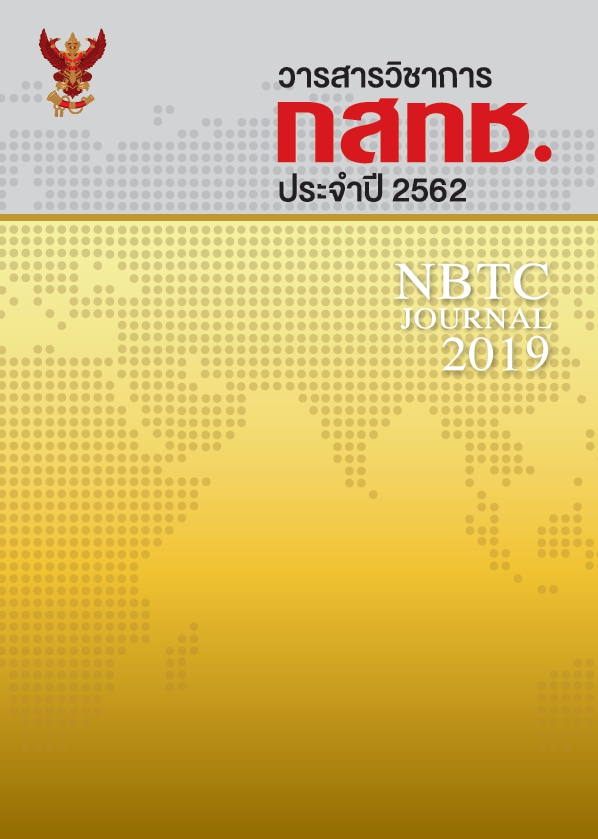Directions and challenges in the negotiation of the Telecom Trade in Services Agreement (TiSA) the digital economy era
Keywords:
Trade in Services Agreement (TiSA), Liberalization of trade in telecommunication services, Telecommunication AnnexAbstract
The Trade in Services Agreement (TiSA) arose from the integration of 23 member countries in order to improve the rules for the liberalization of trade in services between countries after the failure of
the World Trade Organization Agreement negotiation. The structure and key provisions of the Service
Trade Agreement (TiSA) are mainly based on the General Agreement on Trade in Services (GATS) under
the framework of the World Trade Organization (WTO). The Trade in Services Agreement (TiSA) is regarded
as the direction of the liberalization of trade in services in digital economy era. Telecommunications is recognized as one of strategic sectors under this Agreement. With the objective to set the rules for liberalization and domestic regulation of member countries to be transparent, eliminate unnecessary regulatory burdens and market-based mechanisms. However, the negotiation of this Agreement is not yet settled since the Agreement lacks a balance in strengthening competitiveness and favors to developed countries and tech giants. Thailand, as a part of the global economy, should therefore be well prepared to handle future challenges. The study was an qualitative study and documentary research.
References
Elina, V. (2015).The Trade in Services Agreement (TISA): An end to negotiations in sight?, Retrived from European
Parliament, Directorate-General For External Policies, Policy Department Website: https://www.europarl.
europa.eu/RegData/etudes/IDAN/2015/570448/EXPO_IDA%282015%29570448_EN.pdf
European Commission. (2015, October 6-13). Report of the TiSA negotiation round. Retrieved from https://trade.ec.
europa.eu/doclib/docs/2015/october/tradoc_153917.15.pdf
Global Justice Now. (2016). What is TiSA and why do we need to stop it?. Retrieved from https://www.globaljustice.
org.uk/resources/what-tisa-and-why-we-need-stop-it
Gould, E. (2014). The Really Good Friends of Transnational Corporations Agreement. Retrieved from Public Services
International website: https://www.worldpsi.org/sites /default/files/documents/research/report_tisa_eng_lr2.pdf
Introduction
International Trade Union Confederation. (2016). All About TiSA: Everything you didn’t know about the Trade in
Services Agreement. Retrieved from https://www.ituc-csi.org/IMG/pdf/ituc-tisa-report_en.pdf
Jane, K. (2017). The Trouble with TiSA. The Trade in Services Agreement and how it threatens transport workers’
rights. Retrieved from the International Transport Workers’ Federation (ITF) and Friedrich-Ebert-Stiftung website :
and-how-it-threatens-transport-workers-rights/
Jane, K. (2017). TISA: the leaked core text. Retrieved from https://wikileaks.org/tisa/analysis /Analysis-of-20150424_
Core-Text/page-1/#pagination.
Nigel, C., & Stephen, E. (2016, June 6). Crafting an Innovation-Enabling Trade in Services Agreement. Retrieved
from Information Technology and Innovation Foundation website : https://itif.org/publications/2016/06/06/crafting-
innovation-enabling-trade-services-agreement
Sherry, S., Alexandros, R. & Jimena, S. (2016). Implications of the Trade in Services Agreement (TiSA) for
Developing Countries. [Discussion Paper]. Retrieved from German Development and Deutsches Institut für
Entwicklungspolitik Institute https://www.die-gdi.de/en/discussion-paper/article/implications-of-the-trade-in-
services-agreement-tisa-for-developing-countries/
Wikileaks. (2015). Initial Analysis of TiSA Telecommunications Annex. (July 2, 2015). Retrieved from
Downloads
Published
How to Cite
Issue
Section
License
The Office of the NBTC holds the copyright of articles appearing in the journal. The Office of the NBTC allows the public or individuals to distribute, copy, or republish the work under a Creative Commons license (CC), with attribution (BY), No Derivatives (ND) and NonCommercial (NC); unless written permission is received from the Office of the NBTC.
Text, tables, and figures that appear in articles accepted for publication in this journal are personal opinion and responsibility of the author, and not binding on the NBTC and the Office of the NBTC. In case of errors, each author is solely responsible for their own article, and not concerning the NBTC and the NBTC Office in any way.



